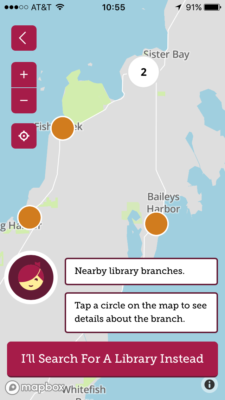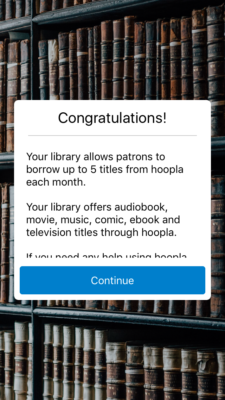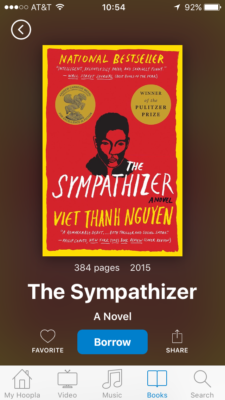Movies, TV Shows, Albums & More: Local Libraries Offer Digital Renting Service
- Share
- Tweet
- Pin
- Share
Times are changing at the library. Digital renting services at Door County libraries provide free access to eBooks and audiobooks for library card holders through smartphones and tablets to be used at home.
Say you and some friends decide to bring back the old book club after noticing a new and exciting title circulating bestseller lists. There’s some resistance from some in your group, however, to paying the hardcover price on faith that they will like it.
If you don’t mind eBooks, then this is when services like Hoopla and Overdrive come in. At no cost to the reader, you can rent titles through one of several apps and get to reading.
Door County Libraries offer several different digital services, the oldest being the eBook-heavy app Overdrive. The statewide collection of Overdrive has grown to be quite large, with more than 45,000 eBooks and 14,000 audiobooks. With Overdrive, however, a limited number of licenses per book means hold times for eBooks just like for physical copies at the library. That means library systems must build a collection of eBooks on Overdrive just as they would purchase items for a physical collection.
Hoopla Digital is trying to change that structure. With 500,000 movies, TV shows, eBooks, audiobooks, music albums, and comics, Hoopla is completely hold free, which, for the library member, means simply: borrow what you want, when you want. The only limit you have is on the number of titles you rent per month.
The apps are easy to use. Just download them onto your device, select a nearby library you belong to, and enter your library card number. Then start borrowing.
The library side of things, however, is a little more complicated. Services like Overdrive sell licenses to eBooks to library collections, meaning the library “owns” copies of eBooks which can then be checked out, by one person at a time, through the app. The library, then, has complete control over the amount of money spent on Overdrive services.
Not so with Hoopla. Rather than sell the rights to individual copies, Hoopla charges the library per check out, and the library doesn’t have to worry about purchasing individual copies of items.
This pricing structure for Hoopla Digital, as you could imagine, has gotten a little out of hand. Whereas the collection offered through Overdrive is owned by the state, and therefore has a larger budget, Door County libraries are independent in their Hoopla subscription.

Libby, Overdrive’s new app, streamlines the user interface for ease of use. Link to a nearby library to access their collection.
Door County libraries began offering services through Hoopla last December. They haven’t had much time to work the kinks out. The popularity of Hoopla at Door County libraries has hit estimated costs ahead of time, prompting them to limit users to fewer checkouts per month.
In addition to Overdrive and Hoopla, Door County libraries offer services through OneClickDigital for audiobooks as well as Zinio, a service for full color magazines, which is similar to Hoopla.
Just as the library system is adapting to offering different ways to access their collections, so too is the function of the physical space changing with the needs of its patrons.
“Libraries are evolving over time,” said Laura Kayacan, Adult Services Librarian at Door County Library. “They’re more community centers now than they used to be. We have people who come in every day just to socialize, read the newspapers…[and] people still love regular books.”
This isn’t a case of libraries shooting themselves in the foot. Rather, they’re staying relevant by offering services that are in demand while structuring their physical location to be a center for meetings, free family activities, and free access to hi-speed internet.
“We have to provide a variety of things,” Kayacan said. “It’s just a new way of reading.” And, at a certain point, despite any misgivings or preferences towards the way we consume media, reading is still reading.




